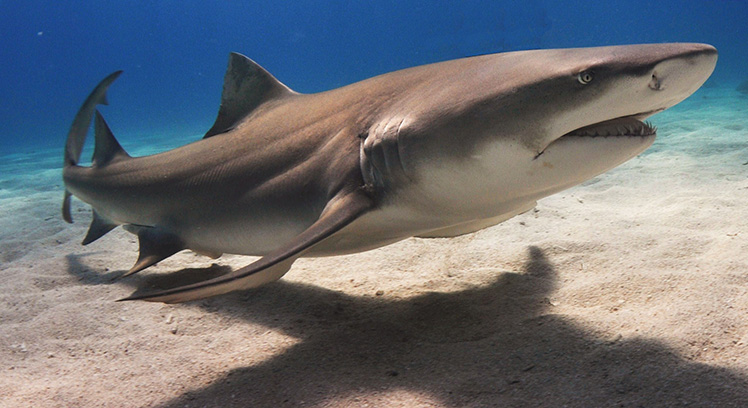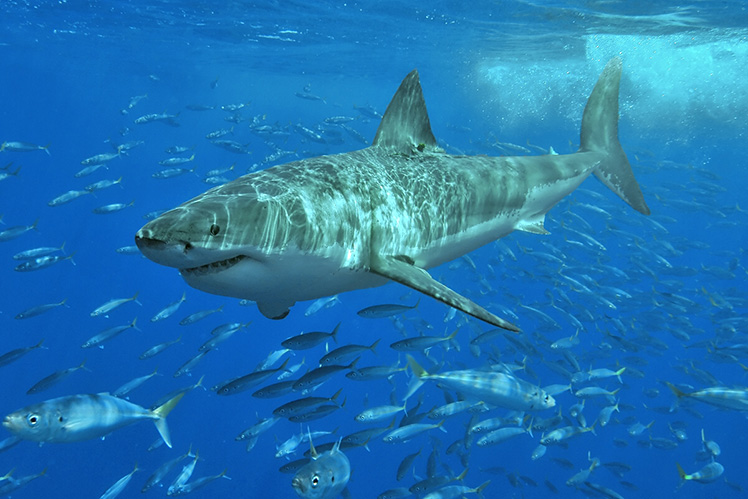
It used to be that when a shark wants to bite its prey, it turns its belly up (Jules Verne wrote about this). The reason for this misconception may be that the shark's mouth is located at the bottom of the head. In reality, when she attacks, she can raise her upper jaw 90 degrees and open her mouth.
Sharks have always been considered insanely ferocious and aggressive animals, but whether this is actually the case is not yet clear. They behave differently. Dozens of sharks may rise from the dark depths to inspect a piece of bait, and swim around it for a long time until one of the sharks makes a throw. If during this careful inspection the bait suddenly twitches, the sharks may recoil in fear and only after a minute or two will they begin their circling again.
However, the blood in the water always drives them into a frenzy, into a wild rage, called "hungry rabies." Then they, neglecting any danger, rush to any prey.
Nevertheless, ideas about the danger of sharks are somewhat exaggerated. Around the world, an average of about fifty shark attacks on swimmers are recorded annually, and only about half of them have tragic consequences. At the same time, for example, in the United States alone, about three hundred people annually are subjected to multiple bee stings, often resulting in death. However, bees do not experience such fear as sharks. Perhaps the reason for this is that sharks also inspire fear in us with their appearance.

Much more often than sharks, ringed blue octopus kills people. Its victims are bathers, who inadvertently pick it up in order to get a better look. This octopus seems harmless, since its body length does not exceed 3 cm. But this is just the case when "small, but bold." The ringed blue octopus is one of the most poisonous creatures on earth: it releases a stronger poison than any land animal.
And if we are talking about poisons, then we note that the poison of a boxwood jellyfish kills a person in 30 seconds to 15 minutes (in exceptional cases, in 2 hours of torment). The venom of the Japanese bloat fish is 200 times stronger than curare, a deadly poison used for poisoned arrows. A person who accidentally eats this fish dies after two hours.
We also recommend:










